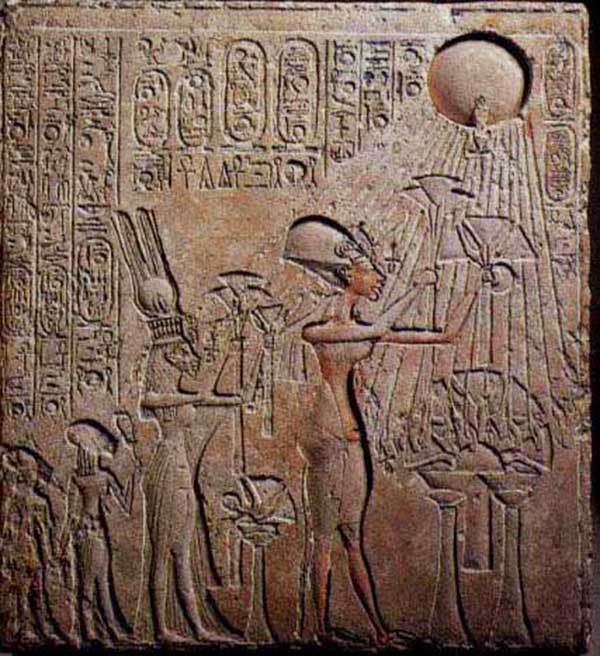Quote:
Originally Posted by
bionicarm http:///t/392782/evolution-vs-intelligent-design/720#post_3496043
Say what? Everything I was taught about Moses was the only time he spoke with "God" was went he was on top of Mount Sinai, and the burning bush. God created the Ten Commandments, and the rest is history...
http://en.wikipedia.org/wiki/Mosaic_authorship
http://en.wikipedia.org/wiki/Old_Testament
http://en.wikipedia.org/wiki/Torah
http://en.wikipedia.org/wiki/Tabernacle
So what's the deal with the Oral Torah? From what I read, there were certain times where nothing could be written down, so this "oral version" was kept and passed down generation to generation. How accurate would this be if all you had for verification is 2nd, 3rd, 4th, and so on accounts of what was originally told to Moses by God?
On the above comment, you are incorrect. That would be the Half Torah portion, When our people were forbidden to read from the Torah, a portion of the writings of the Prophets would remind us of the Torah portion. A Chumash is a compilation of the first five books of the Bible and corresponding readings from the prophets, organized in the order of the
weekly Torah portions. As Paul tried to explain, we are all expected to say and read the same things. All Jews everywhere, no matter where we are....all read the same portion of the Torah each Sabbath to re-unite us a family, so that we are all on the same page every Sabbath.
It states eventually these oral interpretations were written down in the Talmud, which sounds like some offspring of the Torah.
http://en.wikipedia.org/wiki/Talmud
Sorry to say, but the Jewish religion seems somewhat convoluted, where you have all these different tangents as to where all this information is stored - Old Testament, Torah, Oral Torah, Talmud, Mishnah, Midrash....
I'd get lost and confused just trying to keep up with it all.
The Talmud contains details of how things were done. The customs of how to do things were right before their eyes and no need to write it down at the time. Prime example is the Commandment to honor the Sabbath and keep it holy. Without the custom of how to do so...you wouldn't know how to keep the Sabbath, and since breaking the Sabbath could carry a death sentence it would be insane to just let everyone decide for themselves how to go about doing that.
For a long time rabbis did not want the oral traditions written down, for fear the pagan religions could copy the customs.
After the Jews were dispersed and being scattered. It became necessary to write down the customs and the how to information. Without that vital information we wouldn't know HOW to follow the commandment that God gave to Moses. The Talmud (AKA Oral Torah) is flexible, because people change while the law does not. For example, the commandment says wear Tzitzit (fringes) on the corner of our garment...but how can we do such a thing nowadays...we don't have corners on our garments anymore. So we created a garment called a Tallit, and we attach the Tzitzit to it and fulfill the commandment. The Talmud explains these things and how to make the fringes, there a certain number of knots and wraps to create it...all the Torah says is that we are commanded to wear them...The Torah is like a skeleton, the Talmud is like the muscles attached to it that move the skeleton to action.
So while the law of wearing the Tzitzit remains unchangeable as a Torah commandment, the Talmud allows some flex to be able to do what is commanded.
The Mishnah contain the Talmud and the written results of the Rabbis who studied it, their arguments and the points they made to each other, and from it decided the Halachah (rules) to live by each day, what to do on certain days. We may read in detail how each rule was enacted and the why. When Jesus told us to not remove the fence set up by the elders, he was referring to the fence laws of the Mishnah. The Rabbis of old, had made rules (a fence) around the commandments to prevent us from actually breaking the Torah commandment.
The Midrash are just stories derived from the books, or a made up examples to help explain things and teach lessons and values to the listener. Jesus was very good at it, such as his story of the Gardener and the owner and master of the vineyard. The 10 virgins waiting on the groom, 5 were ready, and 5 were not and needed for oil for their lamps.
Yes it can be very confusing. The thing is.... in Judaism, we are required to think and make decisions, not blindly follow the leader. You are more than welcome to just tag along with the Rabbi, say AMEN when he finishes a prayer, but you are also welcome to study and make up your own mind on how you will conduct your life. You can always ask the Rabbis opinion, and what the law contains on the subject. The Apostle Paul touched on this subject and said, blessed are those content, with a clear conscience on the things he decides to do or not do.


